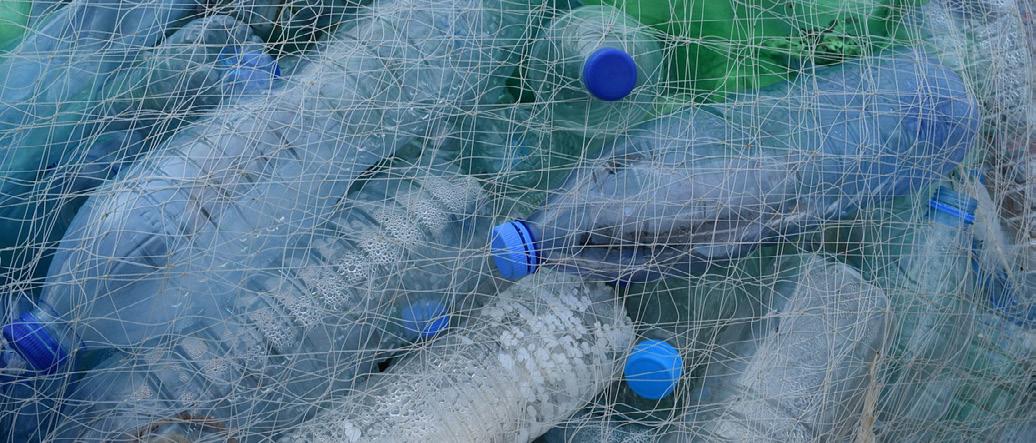
5 minute read
Economic Implications of the Ban of Single-Use Plastics on the Economies of the Caribbean
SNEAK PREVIEW ARTICLE
Look out for more in upcoming issues!
Over the past 50 years, the global production of plastics has increased dramatically, from 15 million tons in 1964, to roughly 311 million tons in 2014.* This growth in production and use reflects plastics’ unrivalled physical properties which allow it to be widely applied in diverse economic production processes at low cost.
Plastics have therefore taken their place as the global ‘work horse of the modern economy’, and projections are for a doubling of plastic production over the next 20 years.
Cognizant of the above, ECLAC Caribbean has undertaken research on the `Economic Implications of the Ban of SingleUse Plastics on the Economies of the Caribbean – A Case Study of Trinidad and Tobago’. The study will look at the possible economic impacts of policy to limit single use plastics in Trinidad and Tobago.
Plastic use is extensive and includes industries such as food handling, storage, information technology, health care, transportation, energy management, building construction, and packaging – to name just a few. The use of plastics for packaging is significant, since it represents the largest share of plastic applications, estimated at 26% of the global volume of plastics used.
More importantly, as much as 95% of plastic packaging – estimated at US $80 - $120 billion annually – is for single-use, with only a mere 5% collected and retained from recycling. While figures for recycled plastic are unavailable for Trinidad and Tobago, it is estimated that plastics constitute as much as 17.5% of total wastes delivered in Trinidad and Tobago, during the past decade.** Such low rate of reuse implies that plastic disposal constitutes a significant negative externality to global economies, with its impacts now being manifested both in terrestrial and marine ecosystems.
ECLAC Caribbean will identify relevant stakeholders and sectors in Trinidad and Tobago who apply single-use plastics in the conduct of their business. The study will also consider the impact of the control of single-use plastics from a public health perspective, in light of recent challenges presented by efforts to control the spread of COVID –19.
The study will be available later this year.
* Ellen McArthur Foundation, 2016: “The New Plastics Economy: Rethinking the Future of Plastics” - https://www.ellenmacarthurfoundation. org/publications/the-new-plastics-economy-rethinking-the-future-of-plastics.
** Organization of American States and Ministry of Planning and Development of Trinidad and Tobago, 2016, “Closed Loop Cycle Production in the Americas Program: Sustainable alternative packaging to replace the expanded polystyrene foam containers produced within the printing and packaging industry of Trinidad and Tobago”.
State Affairs of
Antigua and Barbuda
UK CONTRIBUTES $3.8M FOR COVID-19 AID - May 23 -
Antigua and Barbuda will be one of eight Caribbean countries to receive assistance from the Pan American Health Organization (PAHO) to fight the novel coronavirus disease (COVID-19). This help will come courtesy the Government of the United Kingdom which has agreed to contribute USD $3.8 million to PAHO. The other countries to be assisted from UK funding include Antigua and Barbuda, Belize, Dominica, Grenada, Guyana, Jamaica, Saint Lucia, and Saint Vincent and the Grenadines.
CDB LENDS US$67M TO SEVEN NATIONS - May 19 -
The Caribbean Development Bank (CDB) intends to make available approximately US$67 million in emergency loans to seven Caribbean countries, to finance the response to the coronavirus (Covid-19) pandemic. The bank’s board of directors approved US$66.7 million for Antigua and Barbuda, Belize, Dominica, Grenada, St. Lucia, St Vincent and the Grenadines and Suriname. The emergency loans will provide vital liquidity and increase governments’ fiscal space to allow these countries to promptly meet their urgent financing needs. The Bahamas
GOVERNMENT SEEKS IMF LOAN - May 25 -
The government of The Bahamas has applied to the International Monetary Fund (IMF) for US $252 million to support its ongoing COVID-19 response and budgetary operations. The Bahamas intends to take advantage of a low-cost emergency loan facility that is available to all member countries. According to a statement made by the Ministry of Finance, US $252 million falls within the borrowing authorization approved in the Supplementary “Hurricane Dorian” Budget made in February and will support the Government’s ongoing Coronavirus (COVID-19) response. Since the start of the COVID-19 pandemic, some 27 countries have accessed financial assistance using the IMF’s Rapid Financing Instrument (RFI), including other CARICOM countries.
GOVERNMENT RECEIVED 1.7B IN PLEDGES - Jun 16 - Forty-nine donors have pledged a combined $1.77 billion in value toward The Bahamas’ recovery in the aftermath of Hurricane Dorian, a record storm that laid waste to communities of Abaco and Grand Bahama. Reporting on the source of the funding, the Minister of State for Disaster Preparedness, Iram Lewis, explained that US $1.67 billion was pledged from a single donor; US $42.8 million was pledged by grants; US $53.2 million from technical assistance and gifts in-kind; and $109,000 in cash and sponsorship. Dominica
COVID RELIEF FUNDING - Jun 15 -
The Government of the Commonwealth of Dominica has provided a US $5 million loan facility as part of its Covid-19 economic relief measures. The funds will be disbursed through the Dominica Agricultural, Industrial & Development Bank (AID Bank). According to the AID Bank Manager, Marie-Therese Johnson, over $900,000 in loans have already been approved. The loan agreement will allow small business owners to benefit from a $15,000 loan facility at a 1 percent interest rate and no down payment for 6 months.
WORLD BANK LOAN - Jun 1 - The World Bank will provide the Commonwealth of Dominica with a concessional loan worth US$13 million. The loan’s purpose is to improve the overall regional air connectivity and upgrade the airport infrastructure to safely accommodate for diverted flights and other emergencies. Dominica is one of the four countries benefiting from the World Bank's first financing of Caribbean airport projects, along with Grenada, St Lucia and Haiti. The island had been planning on building its first international airport for some time.







